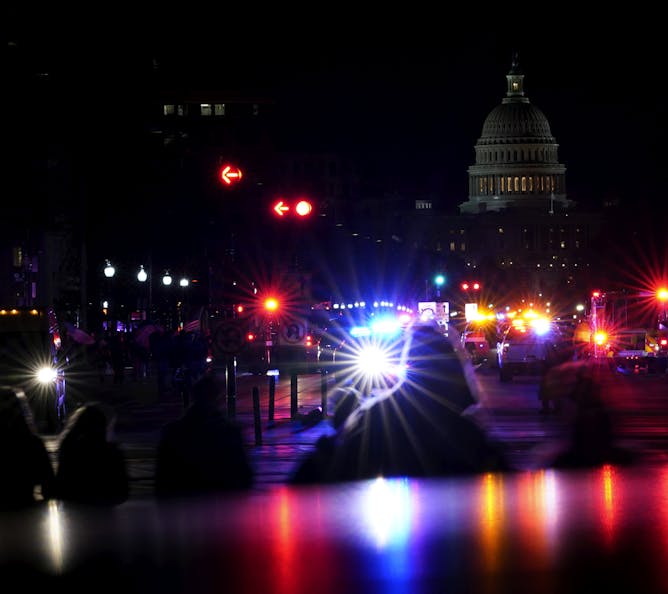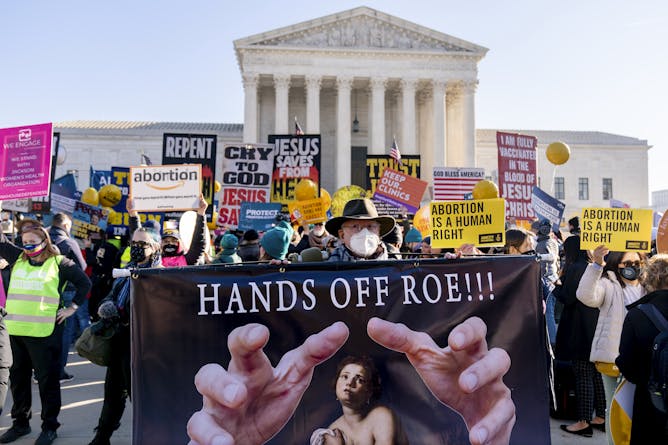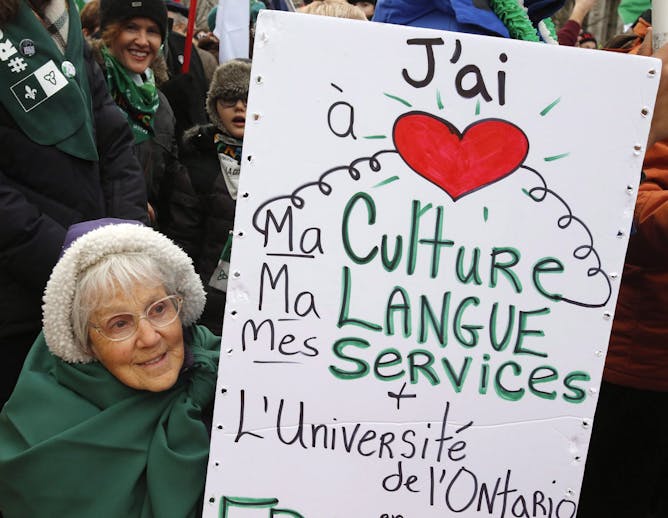|
On Jan. 6, 2021, a group of Donald Trump supporters stormed the U.S. Capitol to interrupt Congress as it was set to formalize the election of Joe Biden as President of the United States. These supporters fervently claimed that the vote was stolen by the Democrats — or “demoncrats.”
In reference to the popularity of zombie narratives in popular culture over the last two decades, witnesses of the insurrection described it as being in a scene from a horror movie. And surprisingly, end-of-world scenarios involving zombies and the apocalypse are increasingly referenced in political narratives.
Today in The Conversation Canada, Christopher Lockett at Memorial University writes that “Commentators have noted how the extremist ideologies of Trump supporters are entwined with a revival of religious impulses.”
And Christopher Douglas at the University of Victoria draws a connection between this religious morality and conspiracy theories popular with conservatives: “It is no accident that some of the conspiracy theories most detached from reality and most dangerous have Satanic or religious components,” he writes.
Also today:
|

|
Nehal El-Hadi
Science + Technology Editor
|
|

The Biblical narratives of good versus evil are influencing political rhetoric.
(Shutterstock)
Christopher Douglas, University of Victoria
Apocalyptic thinking undermines democracy because it delegitimizes political opponents, turning them into enemies of God.
|

Lights from police vehicles illuminate Pennsylvania Avenue in Washington, D.C., in the evening following the insurrection at the U.S. Capitol on Jan. 6 2021.
(AP Photo/Carolyn Kaster)
Christopher Lockett, Memorial University of Newfoundland
The popularity of zombie apocalyptic and post-apocalyptic narratives has emerged from some of the same economic and cultural currents that gave rise to Trump’s presidency.
|

Empathy is needed to understand and combat science skepticism.
(Shutterstock)
Gabriele Contessa, Carleton University
Instead of assuming that science skeptics are motivated by ignorance, or selfishness, we should listen to them and try to understand and address their actual concerns.
|

The graffiti on the building reads, ‘The rich abort, the poor die.’
(Megan Rivers-Moore)
Megan Rivers-Moore, Carleton University
As debates about abortion heat up in the U.S. once again, we need to pay attention to the hard-fought struggles over abortion in other nations where religion plays a key role in politics and public life.
|

A man holds a sign that reads ‘Hands Off Roe!!!’ as abortion rights advocates and anti-abortion protesters demonstrate in front of the U.S. Supreme Court in December 2021.
(AP Photo/Andrew Harnik)
Kimberley Brownlee, University of British Columbia
50 years ago, a noted U.S. philosopher argued that banning abortion forces women to go above and beyond to help an unborn fetus. What other individual rights are at stake if Roe vs. Wade is overturned?
|
La Conversation Canada
|

Patrick Charland, Université du Québec à Montréal (UQAM); Jonathan Bluteau, Ph.D. ps.éd.; Marie-Hélène Bruyère, Université du Québec à Montréal (UQAM); Marion Deslandes Martineau, Université du Québec à Montréal (UQAM); Olivier Arvisais, Université du Québec à Montréal (UQAM); skelling_desmeules.yannick@uqam.ca, Université du Québec à Montréal (UQAM)
La pandémie a eu des impacts importants sur les élèves du 2ᵉ cycle du secondaire (15-17 ans) et sur ceux présentant des difficultés d’apprentissage.
|

François Larocque, L’Université d’Ottawa/University of Ottawa
La modernisation de la Loi sur les services en français de l’Ontario est attendue depuis 2016, et se veut un geste conciliateur envers les Franco-Ontariens de la part du gouvernement Ford.
|
Health
|
-
Brittany Taylor, University of Florida
A biomedical engineer explains how human-made materials inserted in the body hold hope to repair painful injuries more efficiently than bone grafts.
|
|
Culture + Society
|
-
Duncan Wheeler, University of Leeds
In the end it may be a broken business model rather than animal rights activism that finally forces matadors to hang up their capes for good.
|
|
Environment + Energy
|
-
Cynthia Faye Isley, Macquarie University; Kara Fry, Macquarie University; Mark Patrick Taylor, Macquarie University
Trace metal exposure can lead to concerning neurocognitive effects in people of all ages.
|
|
| |
| |
| |
| |
|
|